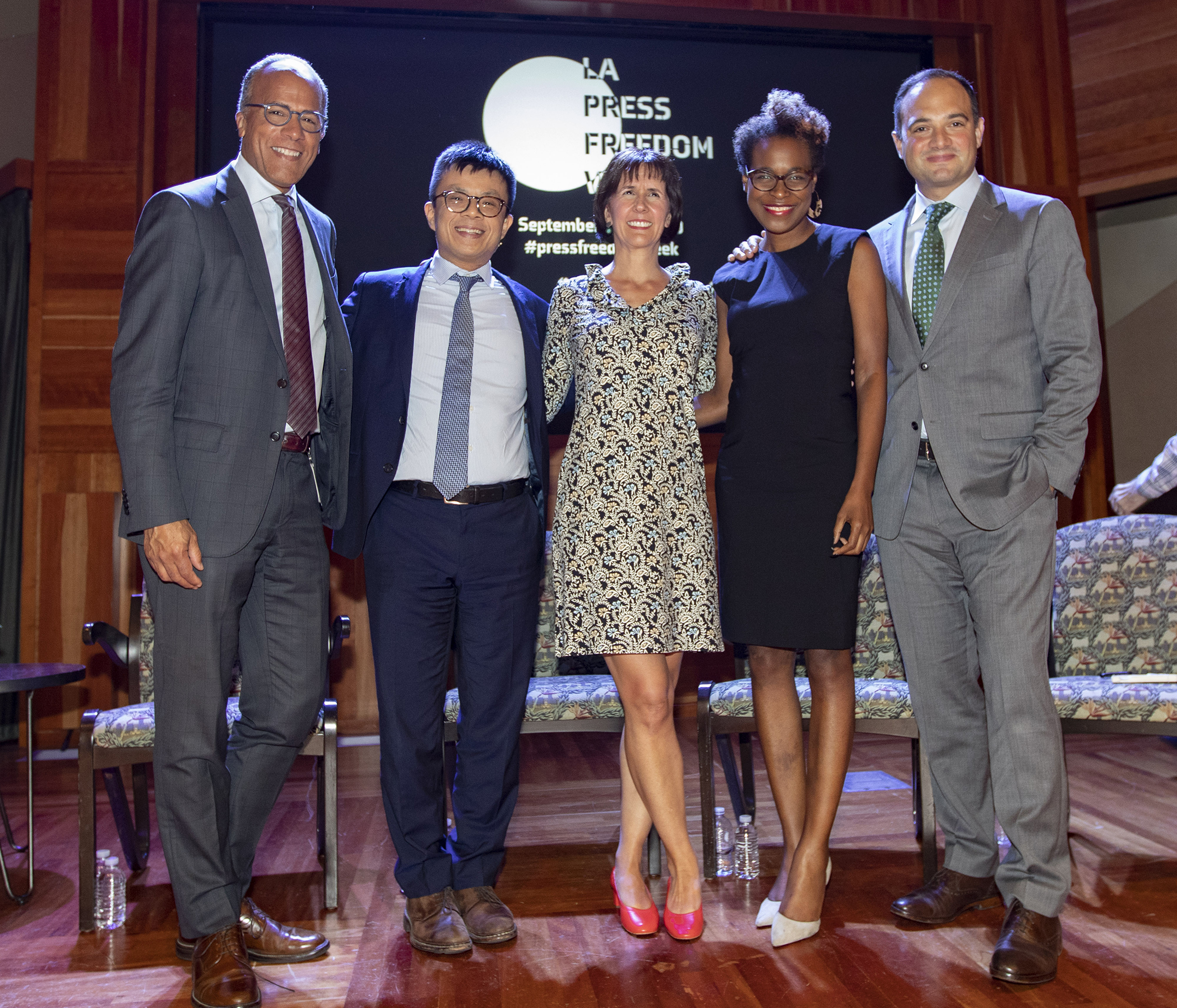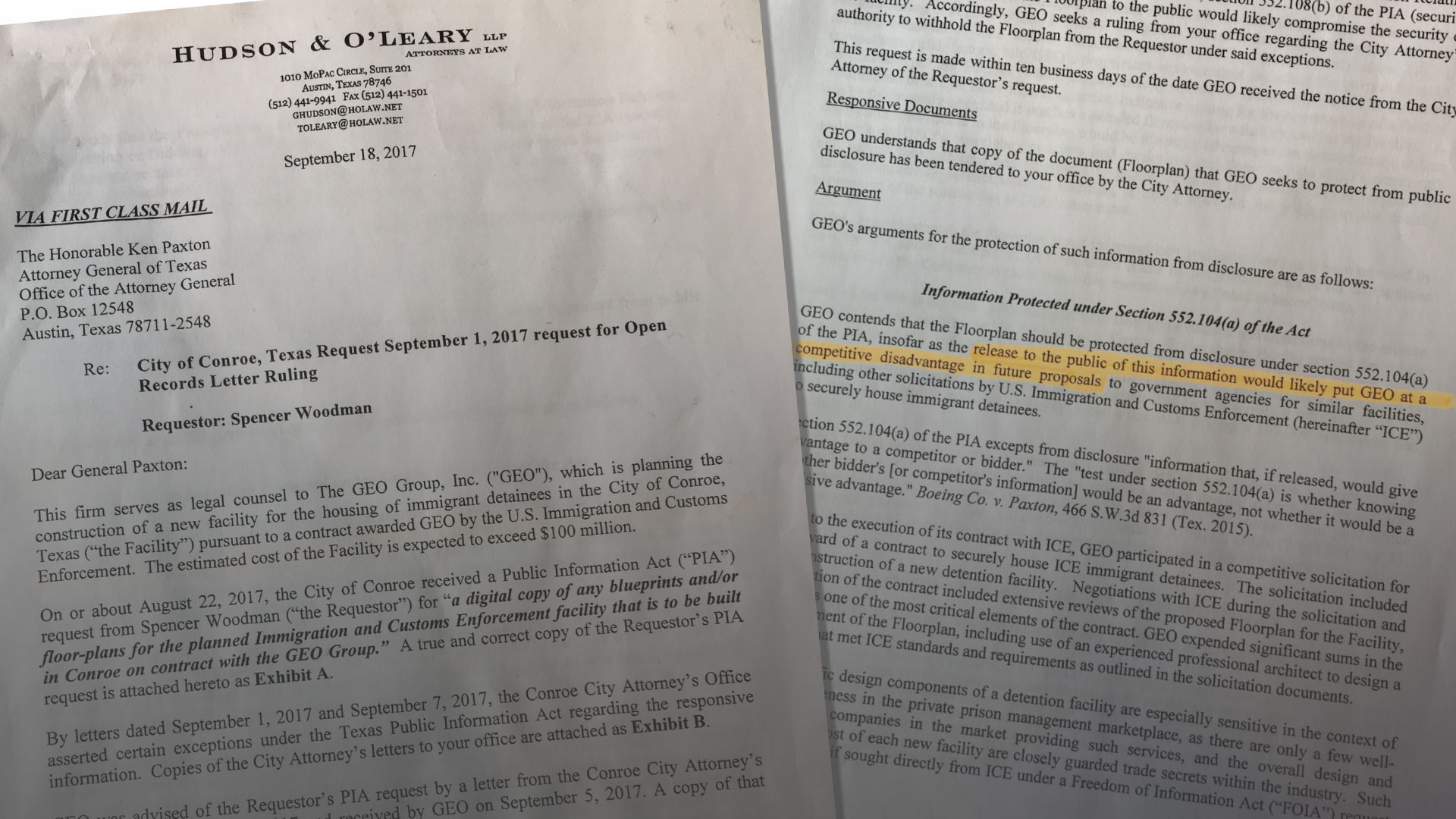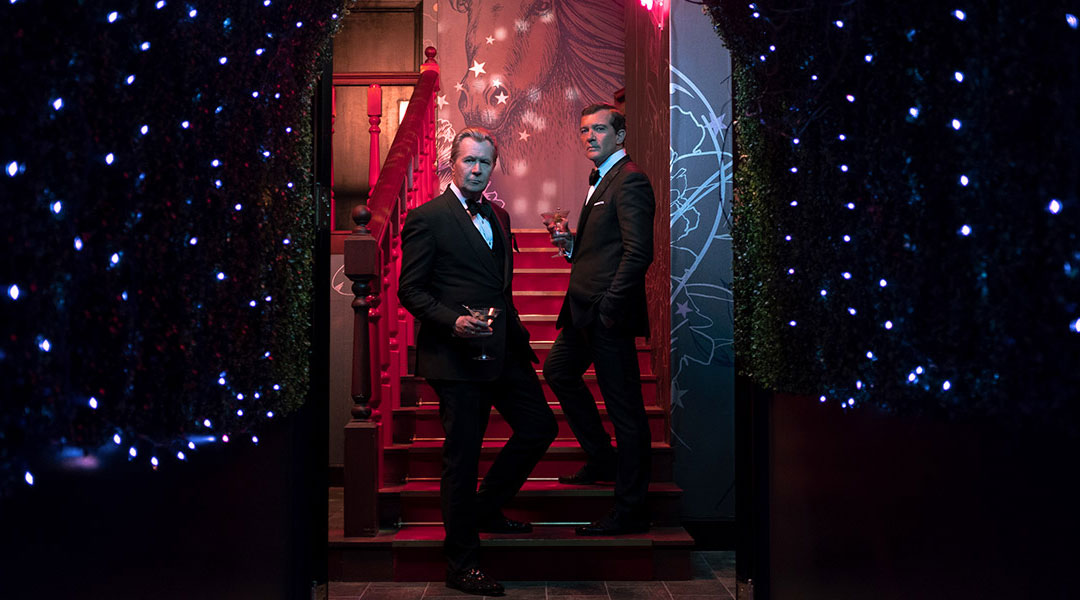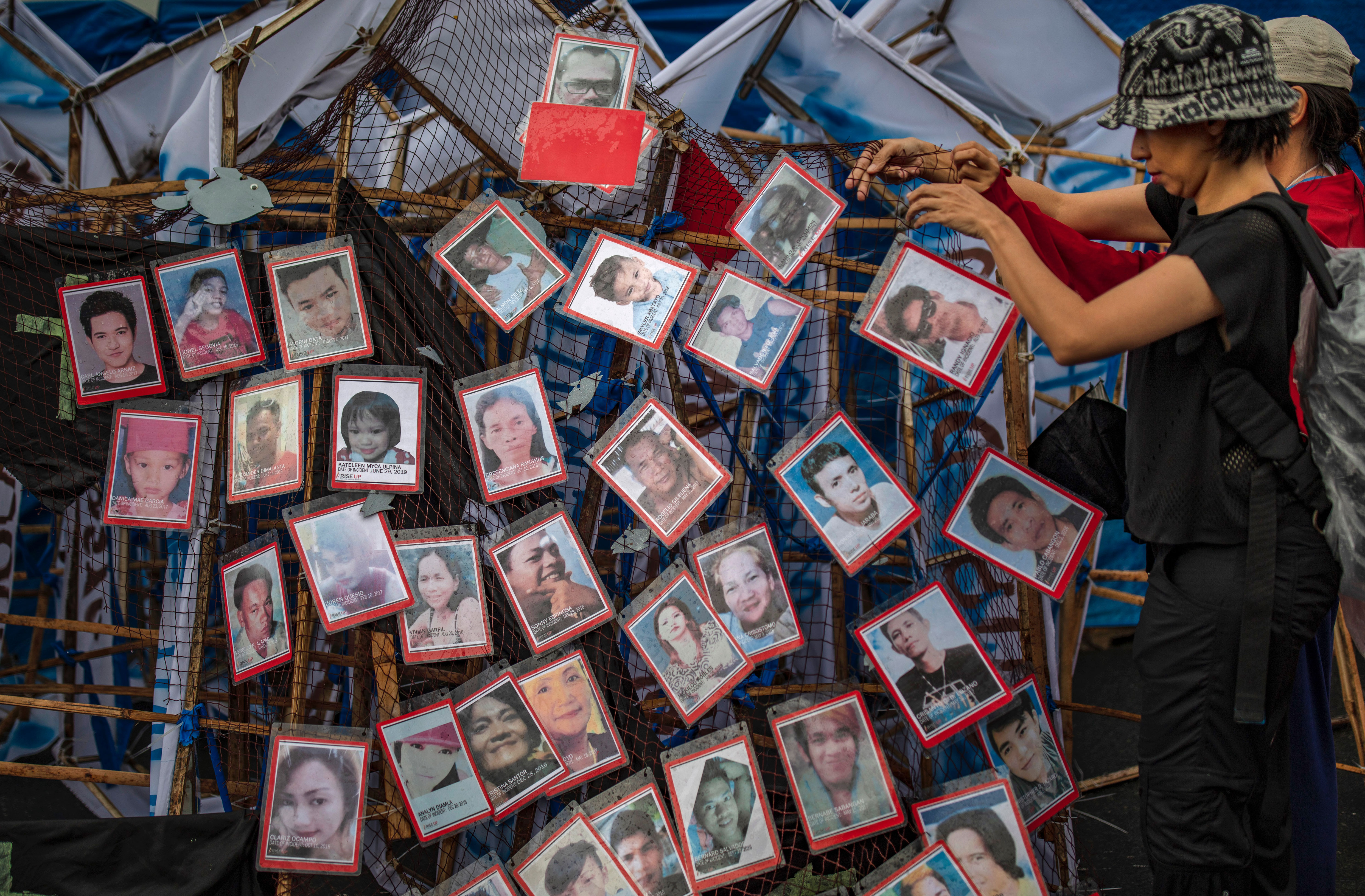Journalists, advocates, lawyers and members of the public gathered in Los Angeles last week for the first-ever LA Press Freedom Week, to discuss the urgent need for press freedom and the challenges that many reporters around the world face.
The International Consortium of Investigative Journalists participated in the week of events, along with co-sponsors the Hollywood Foreign Press Association (HFPA), the Los Angeles Times, the Committee to Protect Journalists and the Reporters Committee for Freedom of the Press. (The HFPA awarded ICIJ with a $1 million grant in 2018).
The week kicked off with a panel on “Press Freedom and Elections.” Journalists Blanka Zöldi from Hungary and Maria Ressa from the Philippines spoke about the specific challenges they face under the regimes in their home countries.
Ressa said that even though there is a “veneer of rule of law” in the Philippines, the government has filed multiple cases against her and Rappler, the online news outlet where she is CEO. Zöldi recalled how her former newspaper was attacked by the government after parliamentary elections in 2014. The chief editor was forced to resign after refusing to remove certain stories from the outlet’s website, which prompted her colleagues to start the independent nonprofit news outlet Direkt36, where she now works.
Zöldi, an ICIJ partner, also spoke to the power of collaborative journalism and how working with ICIJ allows journalists to tell stories they might not be able to tell by working alone. “We are not alone globally as journalists,” she said. “We are facing very, very similar problems and we can also find solutions together.
“You might be able to silence one journalist, but you will never be able to silence hundreds of them.”
Marina Walker Guevara, ICIJ’s director of strategic initiatives and network, spoke on a panel titled, “Press Freedom and Diversity: Whose Voice Gets Included?” She said that for investigative reporters, diversity comes down to “who gets to ask the tough questions and who gets included in these transnational investigations.”
She gave the example of the Panama Papers, which she said could only be told because of ICIJ’s collaborative, cross-border approach. “That form of radical sharing allowed also for radical inclusion of newsrooms from across the world of all sizes, and they were brought together to work as equal partners, from Burkina Faso to Chile to Hong Kong to the U.S.”
On the last panel of the week, “Cross-Border Legal Threats to Press Freedom,” ICIJ member and investigative journalist Monica Almeida from Ecuador recounted her experience working under former president Rafael Correa, who she said treated journalists as corrupt liars. “I knew that [Correa] had a knife and he was running after us,” she said.
Almeida was part of the Panama Papers team in Ecuador that encountered harassment from the government. After they published their stories, Correa revealed their photos and Twitter accounts on television, and encouraged his followers to demand the journalists turn over the Panama Papers files to the government. For Almeida, who wasn’t on social media, Correa told the public: “you must find her.”
To hear remarks from all the participants of LA Press Freedom Week, full recordings of the panels are available here.



